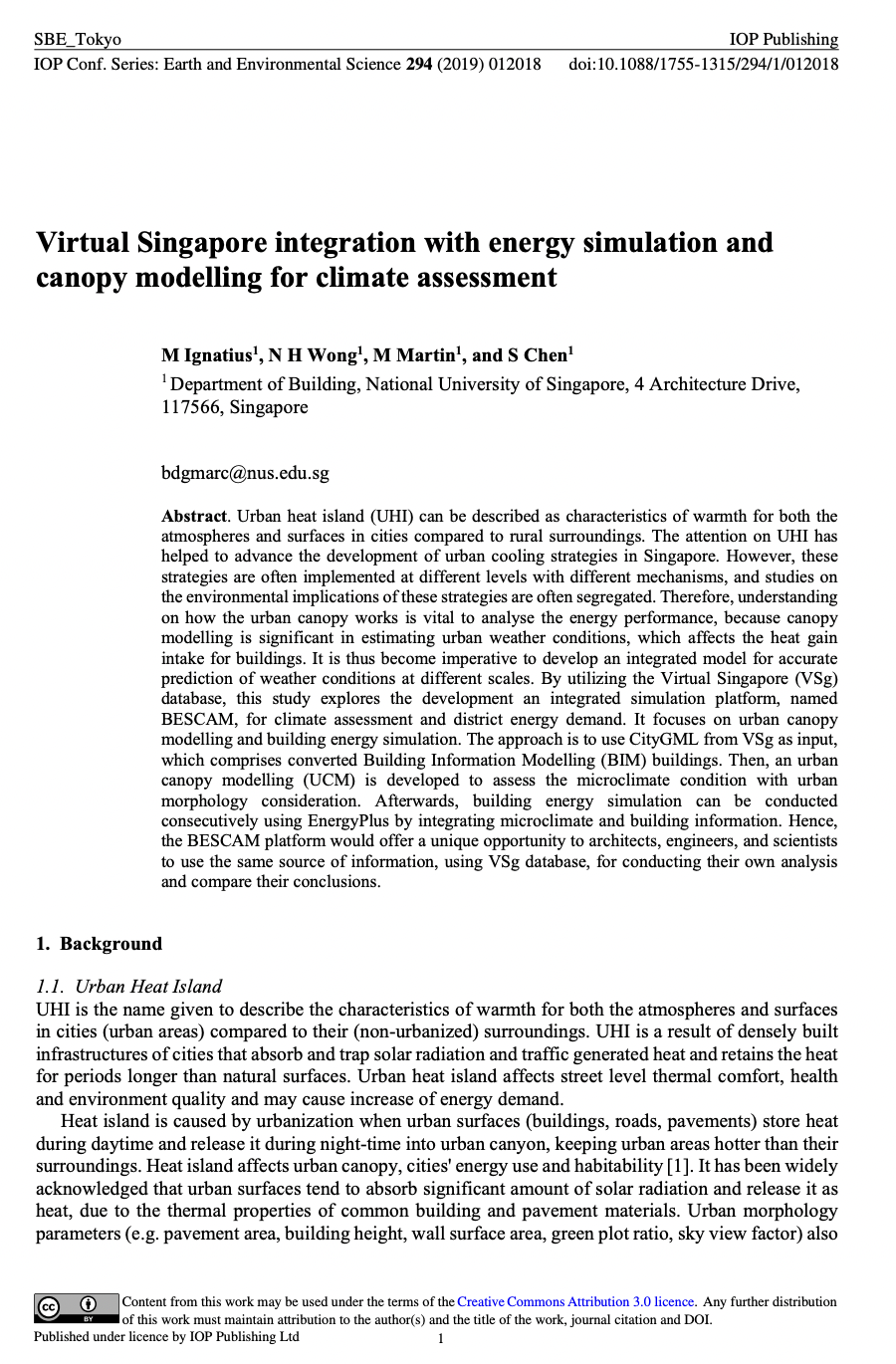
Keyword(s)
Author(s)
M Ignatius, N H Wong, M Martin, S Chen
Country(ies)
Publisher
Published Date
Access
DOI
Department of Building, National University of Singapore, 4 Architecture Drive, 117566, Singapore
Urban heat island (UHI) can be described as characteristics of warmth for both the atmospheres and surfaces in cities compared to rural surroundings. The attention on UHI has helped to advance the development of urban cooling strategies in Singapore. However, these strategies are often implemented at different levels with different mechanisms, and studies on the environmental implications of these strategies are often segregated. Therefore, understanding on how the urban canopy works is vital to analyse the energy performance, because canopy modelling is significant in estimating urban weather conditions, which affects the heat gain intake for buildings. It is thus become imperative to develop an integrated model for accurate prediction of weather conditions at different scales. By utilizing the Virtual Singapore (VSg) database, this study explores the development an integrated simulation platform, named BESCAM, for climate assessment and district energy demand. It focuses on urban canopy modelling and building energy simulation. The approach is to use CityGML from VSg as input, which comprises converted Building Information Modelling (BIM) buildings. Then, an urban canopy modelling (UCM) is developed to assess the microclimate condition with urban morphology consideration. Afterwards, building energy simulation can be conducted consecutively using EnergyPlus by integrating microclimate and building information. Hence, the BESCAM platform would offer a unique opportunity to architects, engineers, and scientists to use the same source of information, using VSg database, for conducting their own analysis and compare their conclusions.
Cite:
M Ignatius et al 2019 IOP Conf. Ser.: Earth Environ. Sci. 294 012018